* Photo: EMEP / "Women will give hand to hand, the world will change"
Click to read the article in Turkish
Releasing a report, the Labor Party (EMEP) has documented how novel coronavirus (Covid-19) outbreak has affected the lives of women in Turkey over the last month and listed a series of demands for women.
The report has raised concerns over the violations of rights suffered by women from every walks of life, especially refugee women, workers and health laborers. Some highlights from the report are as follows:
'Refugee women are at risk'
* As of April 12, 2020, it has been a month since the first coronavirus case was confirmed in Turkey. The picture that has unfolded in the country following the onset of Covid-19 has revealed the system which is based on inequalities, discrimination and exploitation.
* A hundred percent of the packages [announced by the government] consist of measures that will be a remedy to the problems of the capital and bosses. The rights, for which laborers and women have been struggling to protect for years, are usurped by being hidden between the lines of omnibus laws, circular letters and additional clauses.
* The majority of 1 million domestic worker women in Turkey are employed without a contract in temporary and precarious jobs. With the onset of the outbreak, they come to the point of entirely losing their incomes and jobs. The number of unemployed women, which is already almost 2 million, will apparently increase due to dismissals under the pretext of outbreak and, with unpaid leaves, they will be forced to return to their homes where they cannot protect themselves from poverty, hunger and violence.
* 70 percent of healthcare laborers are women and they are affected by the outbreak the most due to both their intensive work tempo and new risks in their workplaces. Even health workers are not regularly monitored for the virus today. Health worker women are very concerned about their increased workload at hospitals, the risk of contracting the virus and transmitting it to the ones at home and lack of adequate measures.
* As of May, seasonal agricultural labor will increase in Turkey. In this field, where a considerable number of women work, the failure to take optimum precautions in these workspaces, which do not have clean water, housing and nutrition conditions and even access to the most basic needs such as toilets, might turn the outbreak into a disaster in the event that the vital aid in kind and aid in cash are not provided.
* The worry about a potential increase in violence against women unless special protective measures are taken for women along with other outbreak measures has unfortunately come true over the past month. According to the data on the incidents of violence reported to the Federation of Women Associations of Turkey, physical violence against women has increased by 80 percent, psychological violence has increased by 93 percent, the requests for women's shelters have increased by 78 percent, the number of reports has increased by 100 percent and the incidents of violence without legal support have increased by 96 percent.
* With the onset of the outbreak, especially refugee women, who are the most vulnerable group, are condemned to live in a greater invisibility, poverty, violence and usurpation of rights. Living in difficult and unhealthy conditions in camps, tents and containers and having access to neither water nor soap, refugee women are forced to live in the most terrible conditions due to the hostility born against them.
* Refugees and immigrants cannot get support from any municipalities. The Governor's Offices, the Foundations of Social Support and Solidarity and Sub-Governor's Offices do not give the necessary support to immigrants and refugees. Refugee women cannot benefit from any support mechanisms relating to violence against women, they cannot benefit from the Centers for Preventing and Monitoring Violence Against Women (ŞÖNİM).
Requests
Against the above background, the EMEP has listed a series of requests, including the suspension of all production and services except for the ones that are obligatory and necessary, paid leave to all workers without any exceptions based on job security, effective and extensive aid in cash and aid in kind who do not have income and efficient, regular and adequate protective measures guaranteeing the health of women workers and taking their special needs into consideration. (EMK/SD)




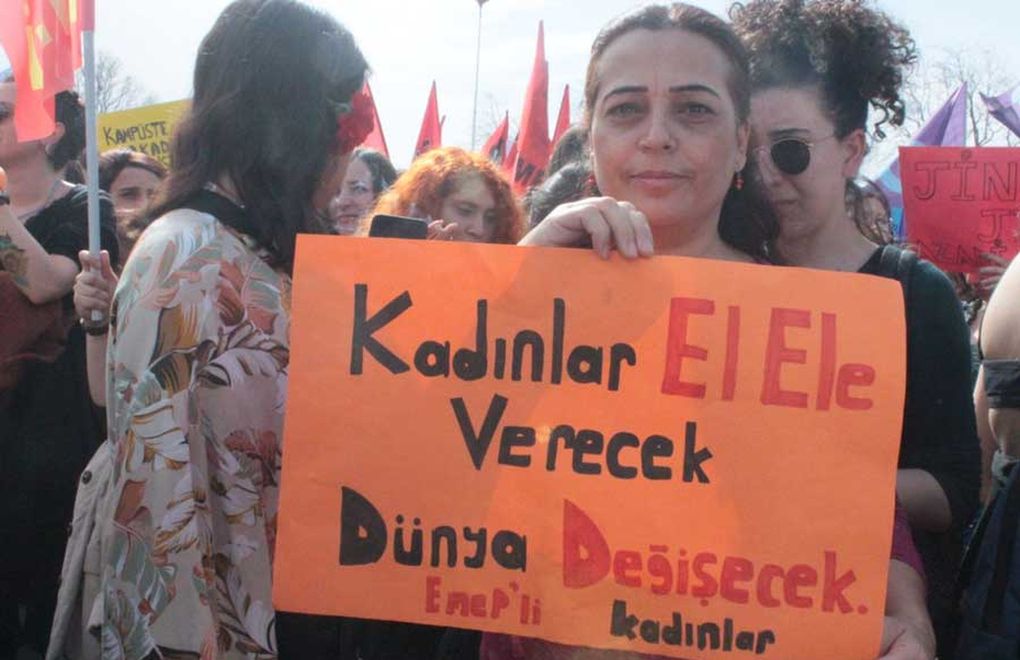

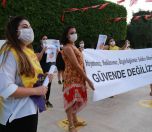

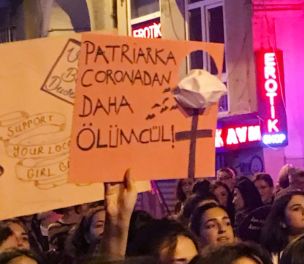
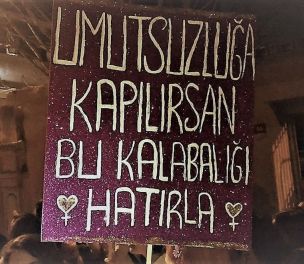
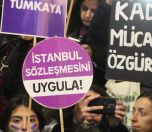
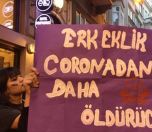
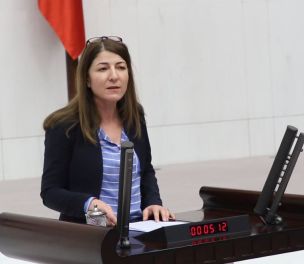
-132.jpg)